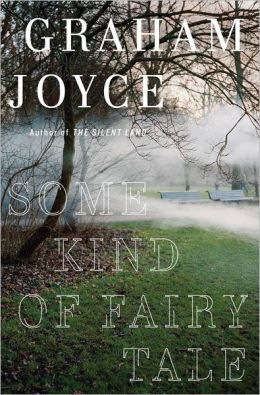
"When I first proved unable to keep the tone light, Ozzie suggested that I be an unreliable narrator...
Understand, I am not a murderer. I have done nothing evil that I am concealing from you. My unreliability as a narrator has to do largely with the tense of certain verbs.
Don't worry about it. You'll know the truth soon enough.
Anyway, I am getting ahead of my story. Little Ozzie and Terrible Chester do not enter the picture until after the cow explodes.
This story began on a Tuesday.
For you, that is the day after Monday. For me, it is a day that, like the other six, brims with the potential for mystery, adventure, and terror.
You should not take this to mean that my life is romantic and magical. Too much mystery is mearly an annoyance. Too much adventure is exhausting. And a little terror goes a long way."Odd Thomas sees dead people. They come to him for help, or just wave at him with their severed arm as he passes by. Odd lives a quiet life as a consummate fry cook in the small town of Pico Mundo (the dead of a large city would overwhelm him). Then, a man comes to town, surrounded by bodachs, dark spirits that feed on pain and destruction like vultures. He has a host of hundreds, hovering, waiting for tragedy. Only Odd can see them. With only this man and a ripped out calendar page (August 15th, tomorrow) as his guides, Odd must try to avert the worst catastrophe the town has ever seen.
This book blew my mind. It has such great characters! Good-hearted, troubled Odd, and his steadfast, strong girlfriend, Stormy Llewellyn. Little Ozzie, the 400 pound Oscar-Wilde-like author who is Odd's mentor, and his huge cat, Terrible Chester. The chief of police and the head of the diner who are Odd's father and mother figures. Rosalia Sanchez, Odd's landlady, who is afraid of becoming invisible. You fall in love with them. And that is part of the problem.
With the impending doom of August 15th approaching, you know you love each of these characters too much. Something will happen to them. Their is a freight train coming, and not all of them will survive.
Yet halfway through the book, you look up and the freight train is not there anymore. You hear the noise, you know it is coming, but it is not on the track you expected it to be and you have no idea where it is coming from. Everything you were certain of, all the clues you gathered, mean something else entirely.
The tension and impending doom (and deeply disturbing sequences) are both broken up an enhanced by casual conversations that happen in between crises. The event approaches, but Odd finds the time to have a picnic with Stormy in the bell tower, or casually ask about someone's family and how they are doing. They are beautiful moments of normalcy and humanity, while at the same time, you are screaming "WHAT ARE YOU DOING, EVERYONE IS ABOUT TO DIE!" By the end of the book, though, you realize how important those moments were.
The ending is beautiful and it broke my heart. It is set up so perfectly, and still it is a surprise. You go back and look, and see that Koontz has dropped clues through the entire narrative, and it could have only lead to this. And some mysteries still remain, which makes me excited to pick up the next Odd Thomas mystery.
That is not to say that the book is perfect. There are moments that I felt should have paid off somehow, or were building to something that never quite exploded. But they are threads that kept the suspense high and me on my toes.
I will end it with a sentence from the back of the book which sums up the experience perfectly: "[Odd's] account of two shattering days when past and present, fate and destiny converge is the stuff of our worst nightmares -- and a testament by which to live: sanely if not safely, with courage, humor, and a full heart that even in darkness must persevere."



